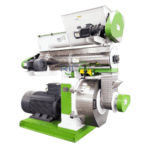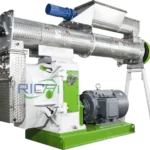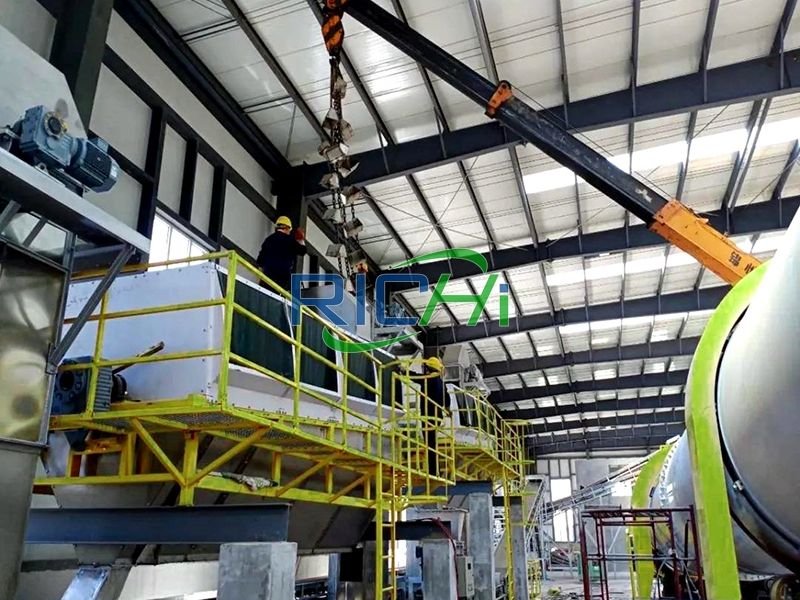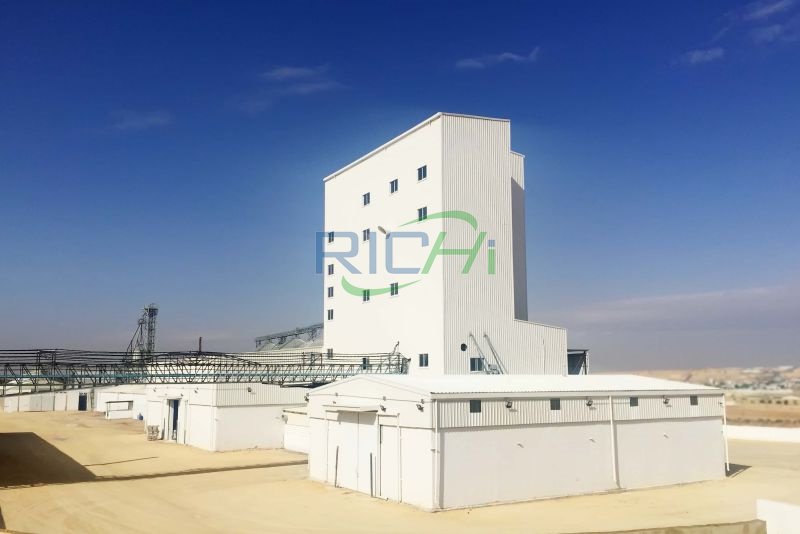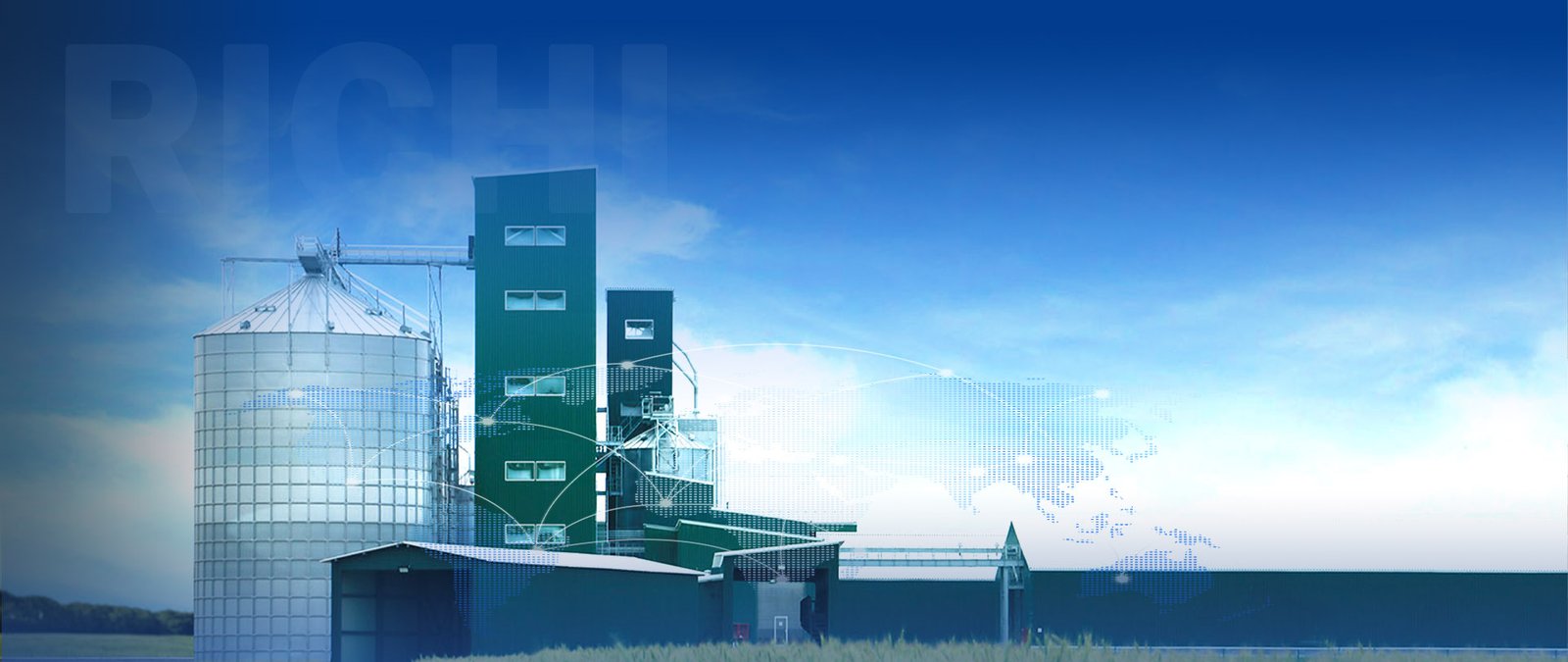In the ever-evolving landscape of sustainable agriculture and waste management, the utilization of poultry manure as a valuable resource has gained significant momentum. Poultry manure, once considered a mere byproduct, has emerged as a powerful organic fertilizer and soil amendment, offering numerous benefits for crop production and environmental stewardship.
At the heart of this sustainable endeavor lies the poultry manure pellet machine – a specialized piece of equipment designed to transform raw poultry manure into dense, uniform pellets, making it easier to handle, store, and apply as a nutrient-rich fertilizer.However, like any industrial machinery, poultry manure pellet machines require regular maintenance and care to ensure optimal performance, longevity, and safety.
Neglecting proper maintenance can lead to costly breakdowns, reduced efficiency, and potential safety hazards, ultimately undermining the profitability and sustainability of your poultry manure pellet production operation.In this comprehensive guide, we’ll explore the essential aspects of poultry manure pellet machine maintenance, providing practical tips and best practices to help you maximize the lifespan and productivity of your equipment.
Understanding the Importance of Preventive Maintenance
Preventive maintenance is the cornerstone of any effective equipment maintenance program. By proactively addressing potential issues before they escalate into major problems, preventive maintenance can significantly reduce downtime, minimize repair costs, and extend the overall lifespan of your poultry manure pellet machine.Regular inspections, cleaning, lubrication, and component replacements are key elements of preventive maintenance.
Adhering to the manufacturer’s recommended maintenance schedules and following industry best practices can help you identify and address potential issues early on, ensuring your machine operates at peak efficiency and minimizing the risk of unexpected breakdowns.
Developing a Comprehensive Maintenance Plan
To effectively maintain your poultry manure pellet machine, it’s essential to develop a comprehensive maintenance plan tailored to your specific equipment and operational requirements. This plan should include detailed schedules for routine inspections, cleaning, lubrication, and component replacements, as well as procedures for addressing potential issues and emergencies.
Collaborate with the equipment manufacturer, experienced technicians, and industry experts to develop a maintenance plan that aligns with best practices and takes into account the unique operating conditions and challenges of your facility. Additionally, ensure that your maintenance plan complies with all relevant safety regulations and industry standards.
Routine Inspections and Cleaning
Regular inspections and cleaning are crucial for maintaining the optimal performance and longevity of your poultry manure pellet machine. Develop a detailed inspection checklist that covers all critical components, including the pellet mill, die assemblies, bearings, motors, and material handling systems.During inspections, look for signs of wear, damage, or potential issues that may require immediate attention or future maintenance.
Additionally, implement a rigorous cleaning schedule to remove accumulated debris, dust, and other contaminants that can interfere with the machine’s operation and potentially cause premature wear or breakdowns.
Lubrication and Component Replacements
Proper lubrication is essential for reducing friction, minimizing wear, and ensuring smooth operation of your poultry manure pellet machine. Follow the manufacturer’s recommendations for lubricant types, application intervals, and quantities to ensure optimal performance and component longevity.In addition to lubrication, regularly scheduled component replacements are crucial for maintaining the machine’s efficiency and reliability.
Components such as bearings, seals, and wear parts are subject to normal wear and tear and should be replaced according to the manufacturer’s guidelines or as needed based on inspections.
Monitoring and Troubleshooting
Effective monitoring and troubleshooting are key to identifying and addressing potential issues before they escalate into major problems. Implement a comprehensive monitoring system that tracks key performance indicators, such as production rates, energy consumption, and temperature levels, to detect any deviations from normal operating parameters.
When issues arise, promptly investigate and troubleshoot the problem, following established procedures and consulting with experienced technicians or the equipment manufacturer as needed. Maintaining detailed records of maintenance activities, repairs, and troubleshooting efforts can help identify patterns and inform future maintenance strategies.
Safety Considerations
Safety should be a top priority when maintaining and operating poultry manure pellet machines. Develop and implement comprehensive safety protocols that address potential hazards, such as moving parts, high temperatures, and exposure to dust or other airborne contaminants.
Ensure that all personnel involved in maintenance and operation are properly trained in safety procedures and equipped with appropriate personal protective equipment (PPE). Regularly inspect and maintain safety devices, such as guards, emergency stops, and lockout/tagout systems, to ensure they are functioning correctly.
Training and Documentation
Effective maintenance of poultry manure pellet machines requires a skilled and knowledgeable workforce. Invest in comprehensive training programs for your maintenance personnel, covering topics such as machine operation, troubleshooting, and safety protocols.Additionally, maintain detailed documentation, including manufacturer’s manuals, maintenance logs, and repair records. This documentation serves as a valuable resource for training new personnel and ensuring consistent maintenance practices across your organization.
Partnering with Experts and Manufacturers
While developing and implementing an effective maintenance program is crucial, it’s also important to recognize the value of partnering with experts and equipment manufacturers. Leverage the expertise of experienced technicians, industry consultants, and the manufacturer’s support team to ensure you are following best practices and staying up-to-date with the latest advancements in maintenance techniques and technologies.
Attend industry events, workshops, and training sessions to stay informed about emerging trends and best practices in poultry manure pellet machine maintenance and sustainable waste management practices.By prioritizing preventive maintenance, developing a comprehensive maintenance plan, and adhering to best practices for inspections, cleaning, lubrication, and component replacements, you can ensure the optimal performance and longevity of your poultry manure pellet machine.
Additionally, by emphasizing safety, training, documentation, and collaboration with experts, you can create a culture of continuous improvement and maximize the efficiency and sustainability of your poultry manure pellet production operation.Remember, proper maintenance is not just a cost – it’s an investment in the long-term success and profitability of your business, while also contributing to the broader goals of sustainable agriculture and environmental stewardship.
Related post: https://www.richipelletmachine.com/organic-fertilizer-production-line/
